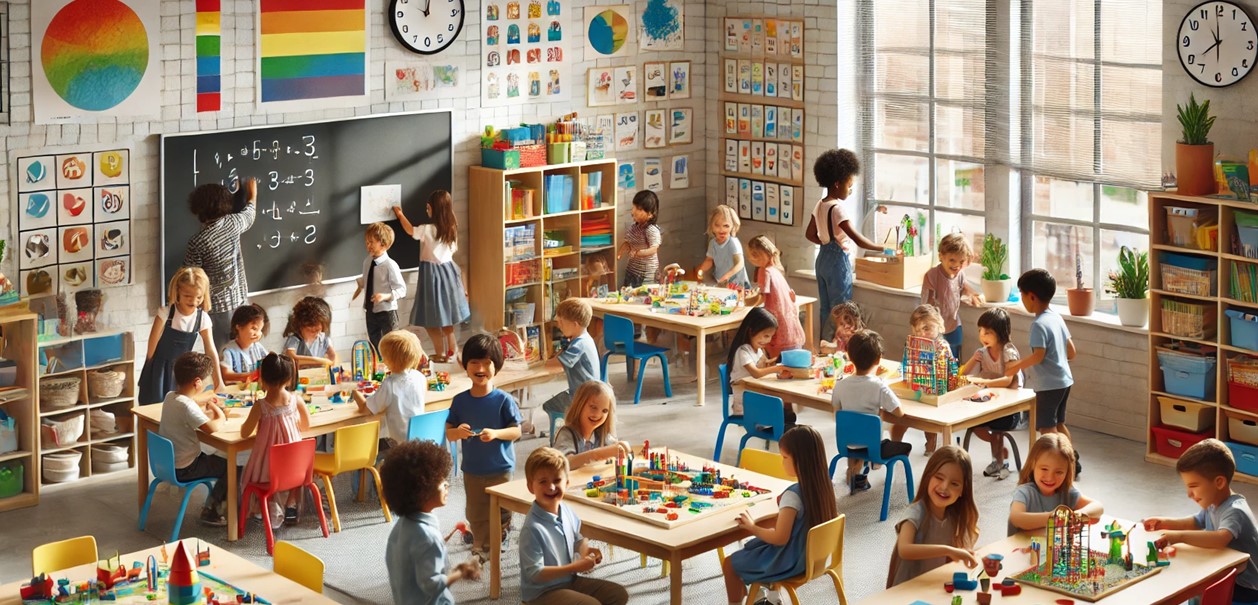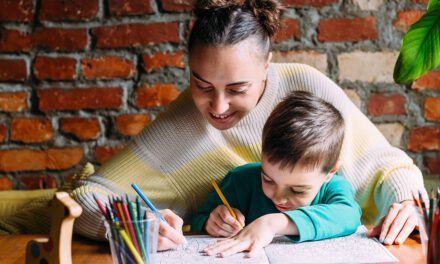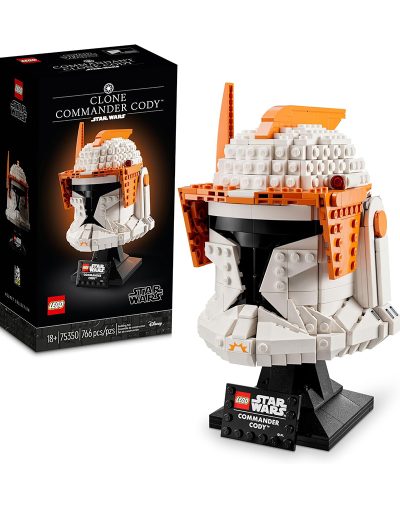Are you wondering how to incorporate play into learning? Well, you can use a couple of tactics, such as engaging them in a playful curriculum design, implementing playful techniques, and fostering playful interactions.
When you encourage a playful atmosphere that promotes hands-on learning experiences, you significantly enhance children's educational journey.
This approach makes learning more enjoyable and boosts children's cognitive development and social skills. In fact, employing a playful curriculum design allows for exploration and creativity. It allows children to discover new concepts in a fun and engaging way.
Integrating interactive games, storytelling, and role-playing activities can create a dynamic learning environment that sparks curiosity and imagination. These interactive and hands-on experiences also help children retain information better and apply their knowledge in real-life situations. Below, we’ll highlight several techniques for integrating play into learning.
Top 4 Ways of Incorporating Play into Learning
Provide Open-Ended Materials
If you want to infuse learning with fun, you have to give kids access to materials that spark their creativity. These items should encourage exploration while aiding in growth.
Setting up an environment filled with cool educational toys and a curriculum that's all about play, makes learning interactive and exciting.
Kids are all about getting their hands dirty to learn stuff. They thrive when they can dig in, mess around, and test new ideas. Open-ended materials are key because they let kids unleash the following:
- Creativity
- Problem-solving skills
- Curiosity
When you let kids take the reins and get creative with materials in their own way, they're more likely to stay interested and engaged in learning. Pairing hands-on learning experiences with open-ended materials in the curriculum pushes kids to learn by doing stuff instead of just sitting back and listening.
Encourage Free Play
Encouraging kids to engage in free play is a great way to help them develop a playful mindset and learn effectively. Giving them the chance to play freely boosts their creativity, independence, and ability to take charge of their own learning experiences. As such, free play should be offered not only in classrooms but also in homeschooling programs.
When kids play freely, they can really dive into their interests and passions while fueling their curiosity and imagination. Through unstructured play, they learn how to problem-solve, make choices, and be responsible for their own learning journey.
This hands-on exploration helps with cognitive development and teaches them important social skills like communication, teamwork, and conflict resolution. Embracing playful behavior allows kids to build up their sense of agency and resourcefulness. Ultimately, this serves them well both in and out of the classroom.
Use Play-Based Learning Activities
When you use play-based learning activities, you're letting children learn through play. They get to have fun while learning, actively participating and picking up effective learning strategies.
Incorporating playful teaching methods enables children to understand better, remember, and use what they've learned.
When kids engage in play-based learning activities, they can tackle complex ideas in an interactive and fun way. They also build up their critical thinking and problem-solving skills by getting hands-on and trying things out.
Playful learning is about exploring and being creative, sparking a real interest in learning. It also encourages kids to interact, work together, subsequently improving their communication and teamwork skills. This fresh take on education makes learning more exciting and caters to each child's unique needs and learning preferences.
Allow for Unstructured Playtime
Allowing for unstructured playtime enables you to create a fun and playful vibe. Such a setting not only encourages interactions but also supports important developmental milestones and learning growth.
During unstructured play, kids get to flex their creative muscles and let their imaginations run wild. They also learn how to lay the groundwork for solid problem-solving skills. These play sessions offer plenty of chances for children to connect with others, helping them sharpen their social skills and emotional intelligence.
Diving into spontaneous play boosts kids’ cognitive abilities – like decision-making and critical thinking – all in a super fun and effortless way. This kind of play isn't just about having a blast; it's about sparking self-discovery. In fact, this plays a huge role in a child's well-rounded development.
For more tips on integrating playtime into learning, check out our website, Marvelus Kids.









